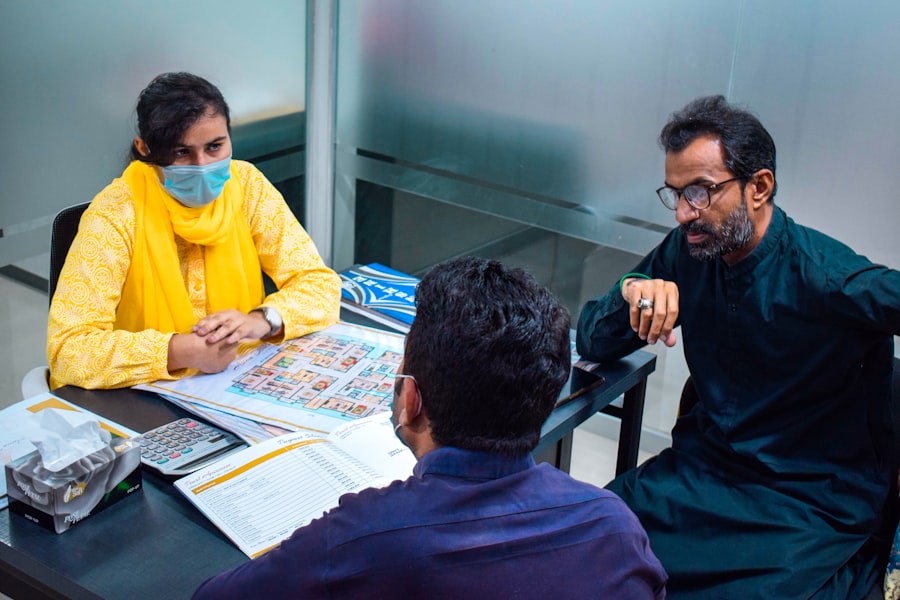Medical trials, often referred to as clinical trials, are a cornerstone of modern medicine. They serve as the primary method for testing new treatments, drugs, and medical devices before they are made available to the general public. The significance of these trials cannot be overstated; they are essential for ensuring that new medical interventions are both safe and effective.
Through rigorous testing protocols, researchers can gather data that informs healthcare practices and policies, ultimately leading to improved patient outcomes. The systematic approach of clinical trials allows for the identification of potential side effects and contraindications, which is crucial for patient safety. Moreover, medical trials contribute to the advancement of scientific knowledge.
They provide a structured environment where hypotheses can be tested and validated. For instance, the development of vaccines, such as those for COVID-19, relied heavily on clinical trials to assess efficacy and safety before widespread distribution. The rapid pace at which these vaccines were developed and tested during the pandemic showcased the importance of medical trials in responding to public health emergencies.
Without such trials, the medical community would lack the evidence needed to make informed decisions about treatment protocols and preventive measures.
Key Takeaways
- Medical trials are crucial for developing new treatments and advancing healthcare.
- Participants face both potential risks and benefits when joining medical trials.
- Volunteers play a key role in medical progress by contributing to research data.
- Ethical standards ensure the safety and rights of medical trial participants.
- Society benefits significantly from medical trials, highlighting the importance of recognizing participants.
The Risks and Benefits of Participating in Medical Trials
Participating in medical trials presents a unique set of risks and benefits that potential participants must carefully consider. On one hand, individuals who enroll in clinical trials may gain access to cutting-edge treatments that are not yet available to the general public. This can be particularly appealing for patients with conditions that have limited treatment options or for those who have exhausted conventional therapies.
Additionally, participants often receive close monitoring and care from healthcare professionals throughout the trial, which can lead to better management of their health conditions. However, there are inherent risks associated with participation in medical trials. Experimental treatments may have unknown side effects or may not work as intended, leading to potential harm.
Participants may experience adverse reactions that were not evident during earlier phases of testing. Furthermore, the nature of clinical trials often involves randomization, meaning that participants may receive a placebo instead of an active treatment. This uncertainty can be daunting for individuals who are seeking relief from their ailments.
It is crucial for potential participants to weigh these risks against the potential benefits and to engage in thorough discussions with their healthcare providers before making a decision.
The Role of Medical Trial Participants in Advancing Medicine

Medical trial participants play an indispensable role in the advancement of medicine. Their willingness to volunteer for research studies is what enables scientists and clinicians to gather the necessary data to evaluate new treatments. Each participant contributes to a larger body of knowledge that can lead to breakthroughs in understanding diseases and developing effective therapies.
For example, the success of cancer treatments has been significantly bolstered by the participation of patients in clinical trials, which have led to the discovery of targeted therapies that improve survival rates. Furthermore, participants help ensure that research findings are applicable to diverse populations. Clinical trials often seek to include individuals from various demographic backgrounds, including different ages, ethnicities, and health statuses.
This diversity is crucial for understanding how treatments may affect different groups differently. By participating in trials, individuals not only contribute to their own health but also help shape the future of medicine for others who may face similar health challenges. Their involvement is a testament to the collaborative nature of medical research, where patient experiences inform scientific inquiry.
Personal Stories of Medical Trial Participants
| Participant ID | Age | Gender | Medical Condition | Trial Phase | Duration of Participation (months) | Reported Side Effects | Overall Experience Rating (1-10) | Outcome |
|---|---|---|---|---|---|---|---|---|
| P001 | 45 | Female | Type 2 Diabetes | Phase 3 | 12 | Nausea, Fatigue | 7 | Improved glucose control |
| P002 | 60 | Male | Rheumatoid Arthritis | Phase 2 | 6 | Headache | 6 | Reduced joint pain |
| P003 | 29 | Female | Asthma | Phase 1 | 3 | Mild dizziness | 8 | Stable lung function |
| P004 | 52 | Male | Hypertension | Phase 3 | 9 | None | 9 | Lowered blood pressure |
| P005 | 38 | Female | Chronic Migraine | Phase 2 | 5 | Fatigue, Nausea | 5 | Reduced migraine frequency |
The narratives of medical trial participants often highlight the profound impact that participation can have on individuals’ lives. Take, for instance, the story of a woman diagnosed with advanced breast cancer who enrolled in a clinical trial for a novel immunotherapy treatment. Initially hesitant about participating due to concerns about potential side effects, she ultimately decided to join after learning about the promising results from earlier trial phases.
Throughout her participation, she received not only cutting-edge treatment but also comprehensive support from a dedicated team of researchers and healthcare providers. Her experience not only provided her with hope but also contributed valuable data that could help future patients facing similar diagnoses. Another compelling story comes from a young man with a rare genetic disorder who participated in a trial testing a gene therapy approach.
His journey was fraught with challenges, including navigating the complexities of informed consent and understanding the experimental nature of the treatment. However, he felt empowered by his decision to participate, believing that his involvement could pave the way for future advancements in treating his condition. His story underscores the emotional and psychological dimensions of participating in medical trials—beyond just the physical aspects of treatment, there is a sense of agency and contribution to something larger than oneself.
Ethical Considerations in Medical Trials
The ethical landscape surrounding medical trials is complex and multifaceted. One of the primary ethical considerations is informed consent, which requires that participants fully understand the nature of the trial, including its risks and benefits, before agreeing to participate. Researchers have an ethical obligation to ensure that participants are not coerced or unduly influenced by external factors such as financial incentives or desperation for treatment.
This principle is foundational in maintaining trust between researchers and participants. Additionally, ethical considerations extend to issues of equity and access. Historically, certain populations have been underrepresented in clinical trials, leading to disparities in healthcare outcomes.
Efforts are being made to address these inequities by promoting inclusivity in trial design and recruitment strategies. Researchers must consider how to engage diverse populations while ensuring that all participants receive equitable treatment throughout the trial process. The ethical implications of these decisions are profound, as they can influence not only individual health outcomes but also broader societal perceptions of fairness and justice in medical research.
The Impact of Medical Trials on Society

The societal impact of medical trials extends far beyond individual participants; it shapes public health policies and influences healthcare practices on a global scale. Successful clinical trials can lead to the approval of new medications or therapies that transform treatment paradigms for various diseases. For instance, the development of antiretroviral therapy for HIV/AIDS was made possible through extensive clinical research, resulting in significant improvements in life expectancy and quality of life for those living with the virus.
Moreover, medical trials can drive economic growth by fostering innovation within the pharmaceutical and biotechnology industries. The investment in research and development often leads to job creation and advancements in technology that benefit society as a whole. As new treatments emerge from clinical trials, they can reduce healthcare costs associated with managing chronic diseases by providing more effective solutions that minimize hospitalizations and complications.
Thus, the ripple effects of medical trials resonate throughout society, influencing everything from individual health outcomes to economic stability.
Recognizing and Honoring Medical Trial Participants
Recognizing and honoring medical trial participants is essential for acknowledging their contributions to science and medicine. Many organizations and institutions have begun initiatives aimed at celebrating these individuals who take on significant risks for the greater good. Events such as National Clinical Trials Day serve as platforms to raise awareness about the importance of clinical research and to honor those who participate in trials.
Additionally, storytelling initiatives that highlight personal experiences can help humanize the often-abstract concept of clinical trials. By sharing their journeys, participants can inspire others to consider involvement in research studies while also fostering a sense of community among those affected by similar health challenges. Recognition can take many forms—from awards and public acknowledgments to support groups that provide ongoing connections among participants—each serving as a reminder that their sacrifices are valued and impactful.
How to Get Involved in Medical Trials
For individuals interested in participating in medical trials, there are several avenues through which they can get involved. One effective way is through clinical trial registries such as ClinicalTrials.gov, where potential participants can search for studies based on their specific health conditions or interests. These registries provide detailed information about ongoing trials, including eligibility criteria, locations, and contact information for researchers.
Additionally, consulting with healthcare providers can be an invaluable step in finding suitable trials. Physicians often have insights into ongoing research studies within their networks or institutions and can guide patients toward opportunities that align with their health needs. It is also important for individuals to engage in discussions about their concerns regarding participation—whether related to risks or logistical challenges—so they can make informed decisions about their involvement in clinical research.
In conclusion, medical trials represent a vital component of healthcare innovation and progress. They rely on the courage and commitment of participants who contribute their time and health toward advancing medical knowledge. As society continues to grapple with complex health challenges, recognizing the importance of these trials—and those who participate in them—will be crucial for fostering a culture of research that prioritizes patient welfare while driving scientific discovery forward.




